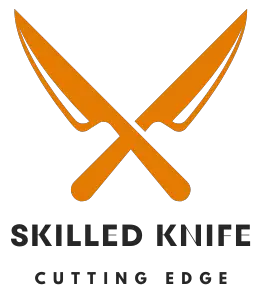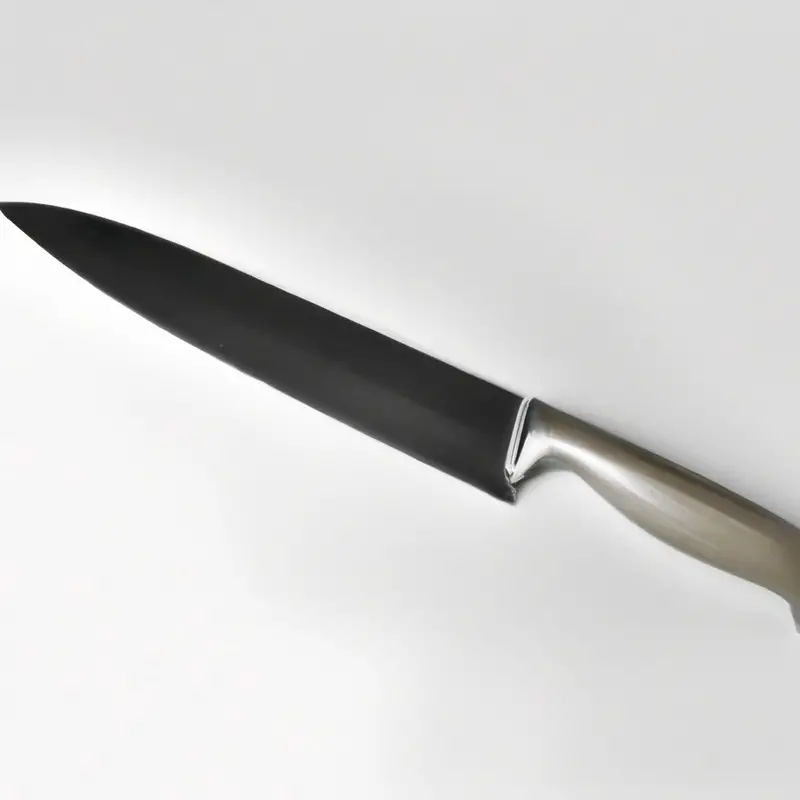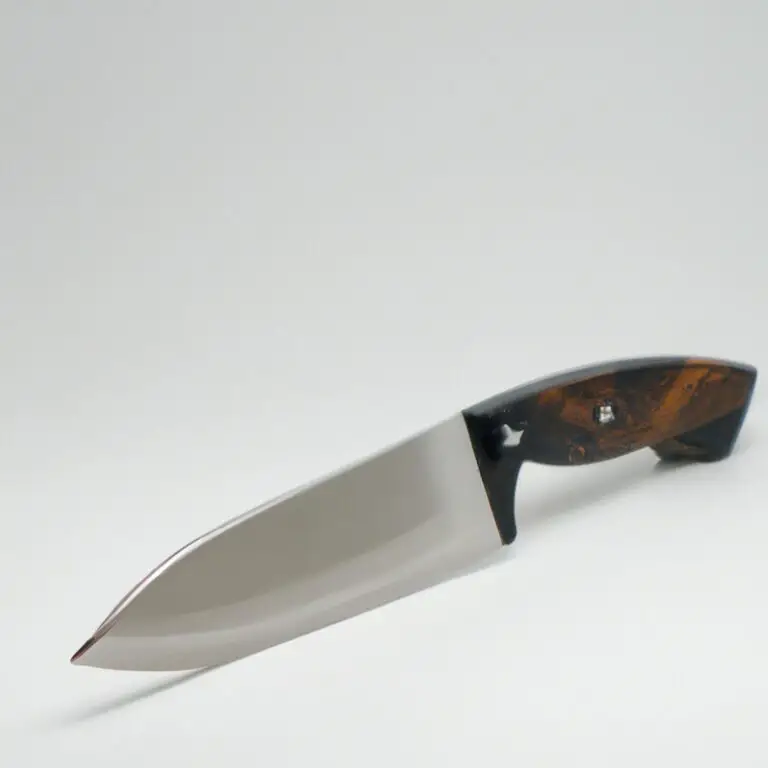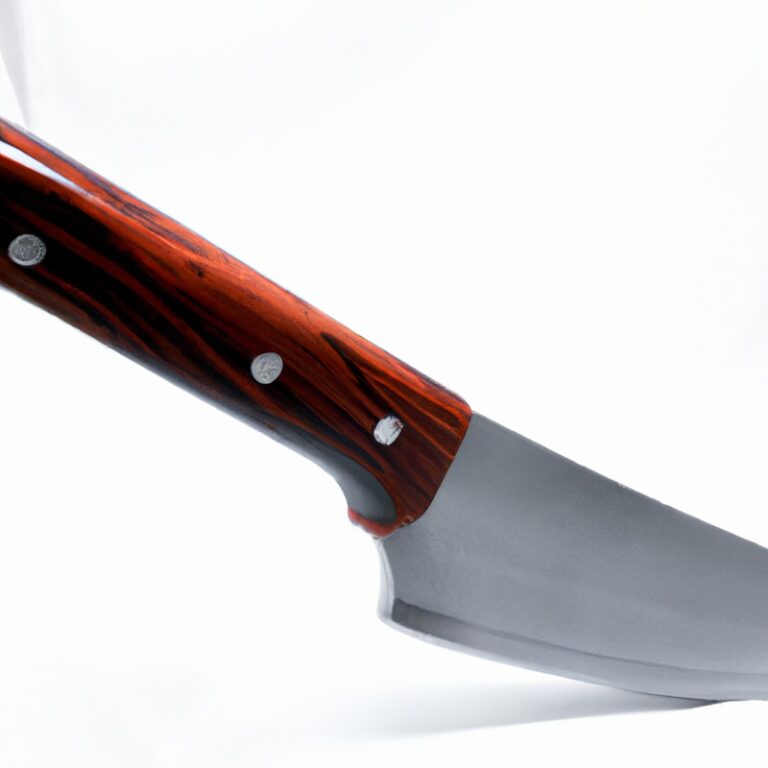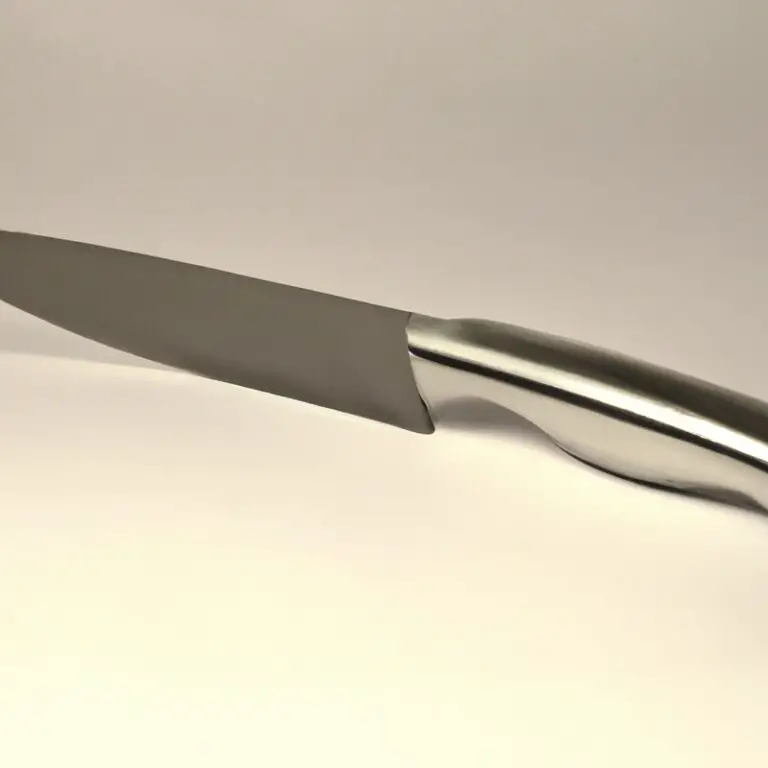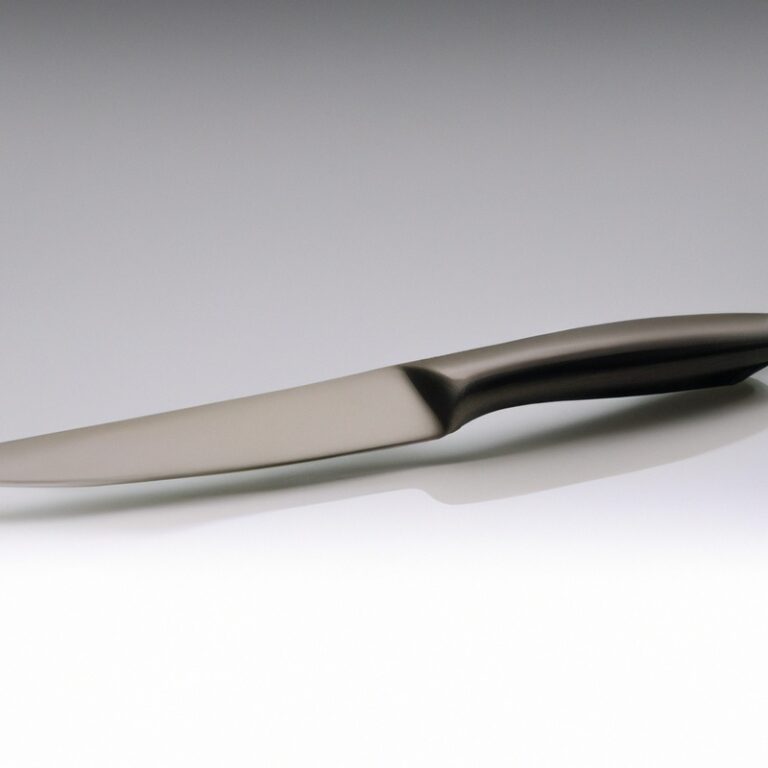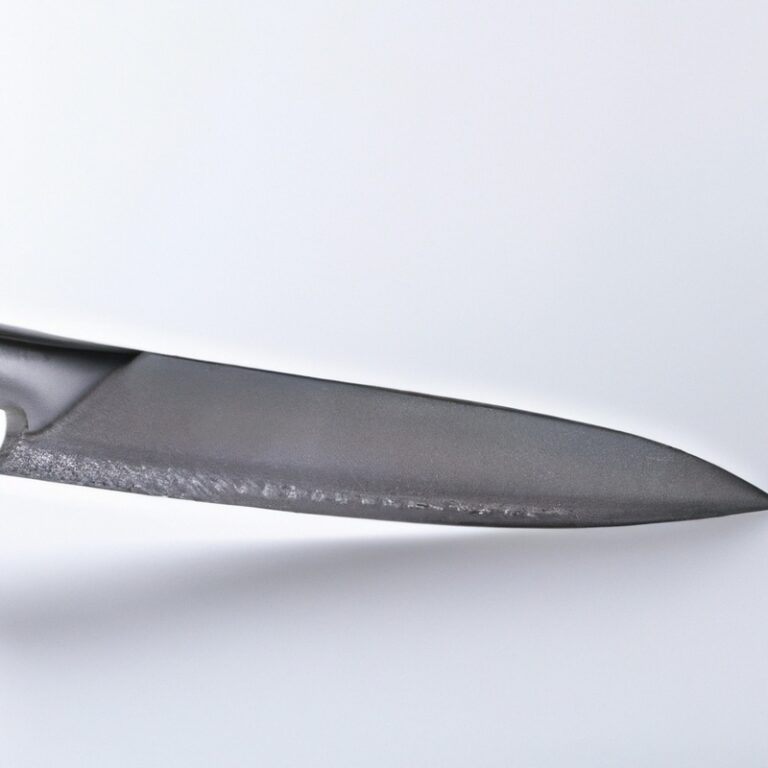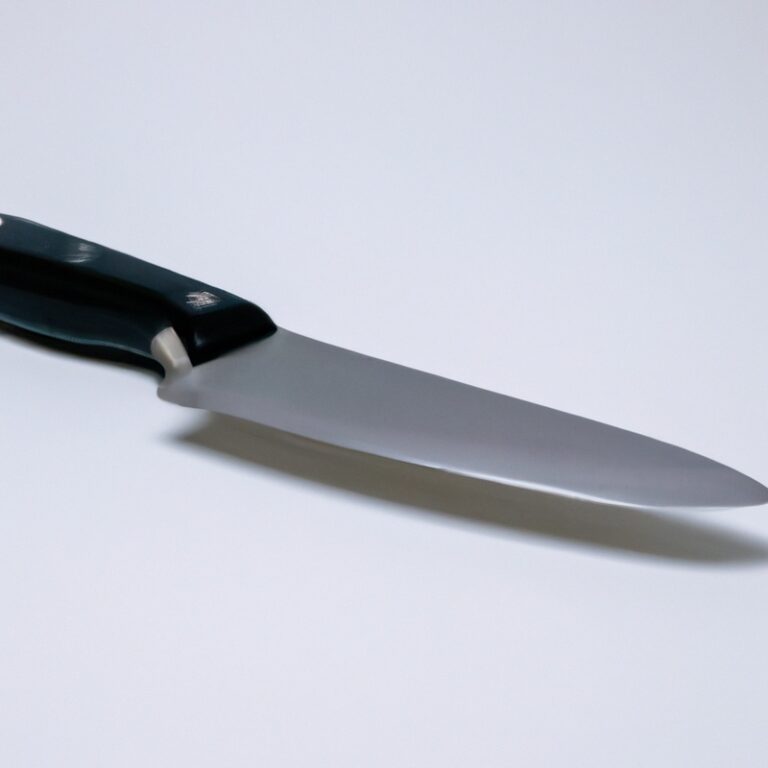Which Knife Steel Resists Corrosion The Best?
Key Takeaways:
- Stainless steels with high chromium content exhibit excellent corrosion resistance.
- Carbon steels, though less corrosion resistant, can be treated to enhance their resistance.
- Certain knife steels like S30V and VG-10 are known for their exceptional corrosion resistance.
- Proper maintenance and care are crucial for preventing corrosion in any knife steel.
Are you tired of your knives rusting and losing their shine? If so, you’re not alone.
As someone who loves cooking and relies on sharp, dependable blades, I understand the frustration of dealing with corroded knife steel.
That’s why I’ve delved into the world of corrosion-resistant knife steels to find out which one stands the test of time against rust and corrosion. In this article, I’ll provide you with a comprehensive guide on the best knife steel options that resist corrosion, along with tips on maintaining their longevity.
Get ready to upgrade your kitchen arsenal and say goodbye to rusty knives for good!
| Stainless Steel | High Carbon Steel | Ceramic | |
|---|---|---|---|
| Corrosion Resistance | High | Low to Moderate | High |
| Sharpness Retention | Moderate | High | High |
| Toughness | Moderate | High | Low |
| Ease of Sharpening | Easy | Moderate | Difficult |
| Cost | Moderate | Low | High |
Understanding Knife Steel Corrosion
What Causes Corrosion in Knife Steel?
Corrosion in knife steel is mainly caused by the presence of moisture and exposure to oxygen. When water or moisture comes into contact with the steel, it can lead to the formation of rust.
This occurs because the iron in the steel oxidizes and forms iron oxide, which is commonly known as rust.
Additionally, certain chemicals and acids can also contribute to corrosion in knife steel. To prevent corrosion, it is important to keep knives clean and dry, and avoid storing them in humid environments.
Regular maintenance and proper storage will help prolong the lifespan of your knives.
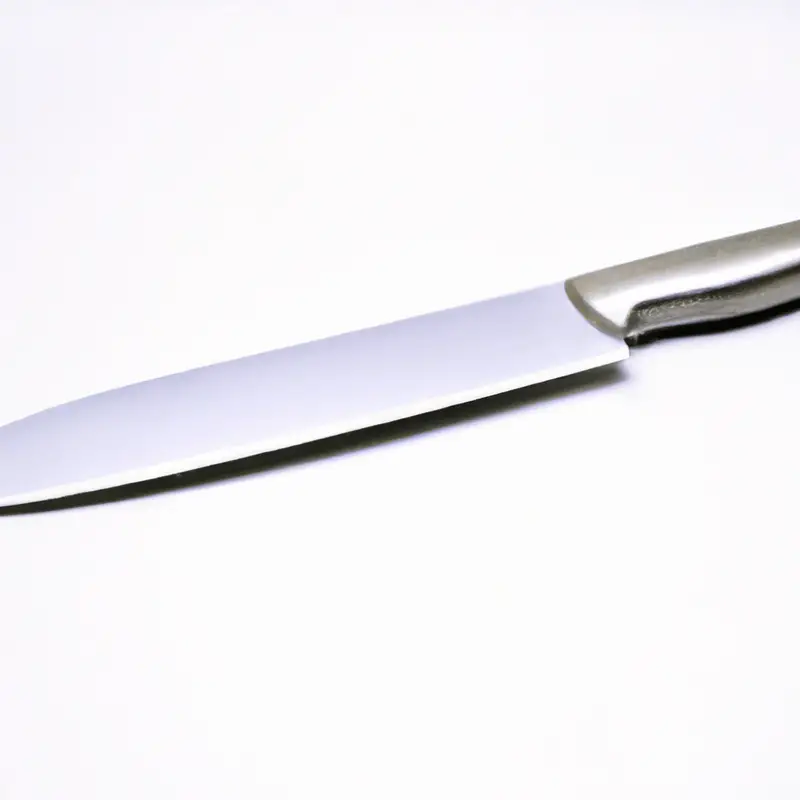
Common Corrosion Resistant Knife Steels
Common corrosion resistant knife steels include stainless steel, ceramic, titanium, and high carbon steel.
Stainless steel is a popular choice due to its high resistance to corrosion, while ceramic is known for its superior resistance to both rust and staining.
Titanium is another excellent option, as it is highly resistant to corrosion and lightweight.
Lastly, high carbon steel offers good corrosion resistance when properly cared for.
These knife steels provide durability and longevity, making them ideal for various cutting tasks.
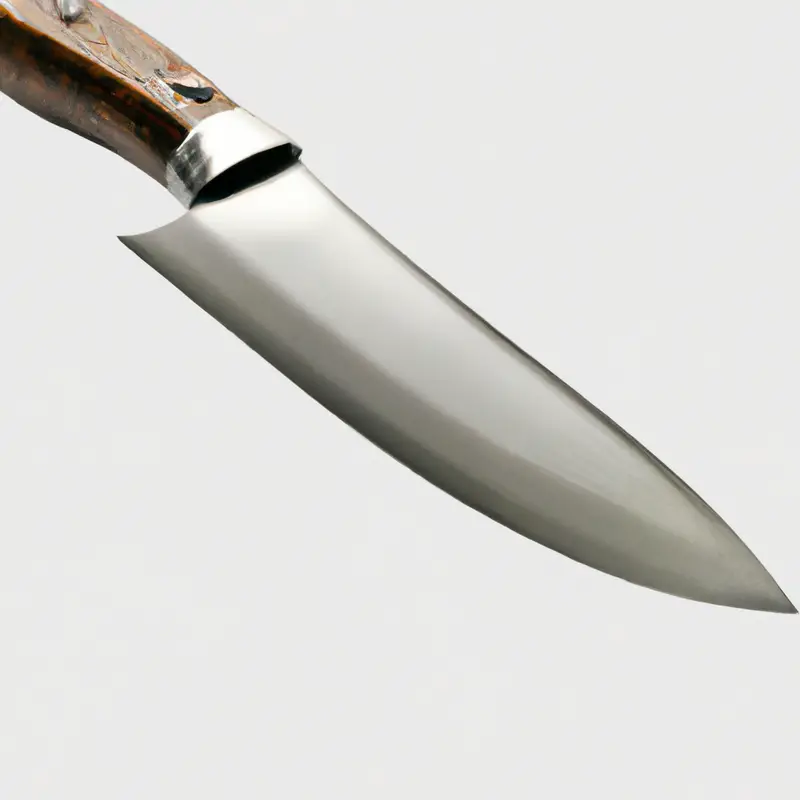
Factors Affecting Corrosion Resistance
Alloy Composition
Alloy composition plays a significant role in determining the corrosion resistance of a knife steel. Different elements added to the steel alloy can enhance or decrease its resistance to corrosion.
For example, stainless steels contain a high percentage of chromium, which forms a protective chromium oxide layer on the surface, preventing corrosion.
Other elements like molybdenum and vanadium can also improve corrosion resistance. On the other hand, carbon content in steel can decrease corrosion resistance.
So, when choosing a knife steel, it is important to consider its alloy composition and the specific corrosion resistance qualities you require.
Surface Finish
When it comes to the corrosion resistance of knife steel, the surface finish plays a significant role. A smooth and polished surface finish helps to prevent corrosion by reducing the number of crevices and imperfections where moisture and contaminants can collect.
Additionally, a high-quality surface finish can provide a protective barrier against environmental factors.
To enhance the corrosion resistance of your knife, consider using techniques like acid etching or electroplating to create a smooth and visually appealing surface. Ensure that your knife has a well-maintained surface finish to maximize its resistance to corrosion.
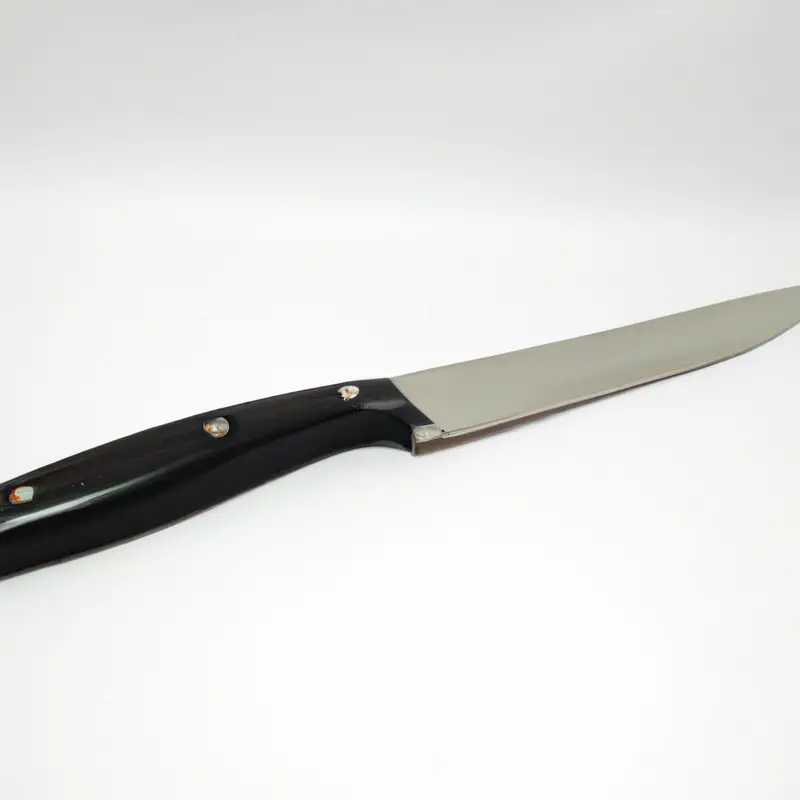
Heat Treatment
Heat treatment plays a vital role in enhancing the corrosion resistance of knife steel.
Through heat treatment, the steel is subjected to specific heating and cooling processes to modify its microstructure.
This improves its ability to resist corrosion by forming a protective oxide layer on the surface.
Heat treatment methods such as quenching, tempering, and annealing can significantly impact the steel’s corrosion resistance.
Proper heat treatment ensures the steel achieves the desired hardness, toughness, and corrosion resistance properties.
It is an essential step in maximizing the performance and longevity of a knife.
Best Corrosion Resistant Knife Steels
Stainless Steel
Stainless steel is a popular choice for corrosion-resistant knife blades.
It contains a high percentage of chromium, which forms a protective layer that helps prevent rust and corrosion.
Stainless steel knives are easy to maintain and require minimal effort to keep them looking their best.
Some commonly used stainless steel alloys in knives include 440C, 154CM, and VG-10.
These steels offer a good balance of corrosion resistance, edge retention, and toughness.
However, it’s important to note that not all stainless steels are created equal, so it’s worth considering the specific composition and heat treatment of a stainless steel blade before making a purchase.
Ceramic
Ceramic is a highly corrosion resistant material, making it a great choice for knife blades.
It has excellent chemical stability, which means it won’t rust or tarnish easily.
Ceramic knives also have a high hardness level, which results in exceptional edge retention and sharpness.
Another advantage of ceramic is that it’s lightweight and easy to maneuver.
However, ceramic blades are more prone to chipping or breaking, so they require careful handling and should not be used for heavy-duty tasks like chopping bones.
Titanium
Titanium is highly regarded for its exceptional corrosion resistance properties, making it a popular choice for knife steels. Its ability to withstand exposure to moisture, chemicals, and even saltwater environments makes it highly durable.
Additionally, titanium is lightweight and has excellent strength-to-weight ratio, making it ideal for knives.
This corrosion-resistant material is also known for its hypoallergenic properties, making it suitable for individuals with metal sensitivities. Overall, titanium is an excellent option for those looking for a knife steel that can resist corrosion and provide long-lasting performance.
High Carbon Steel
High Carbon Steel is a popular choice among knife enthusiasts for its excellent edge retention and strength. It contains a higher percentage of carbon compared to other steels, making it harder and more durable.
However, high carbon steel is not inherently corrosion resistant.
It can rust if not properly cared for. Regular cleaning, drying, and oiling are essential to maintain its corrosion resistance.
Despite this drawback, many still prefer high carbon steel for its performance and the beautiful patina it develops over time.
Maintaining Corrosion Resistance in Knife Steel
Proper Cleaning and Drying Techniques
Proper cleaning and drying techniques are crucial for maintaining the corrosion resistance of knife steel.
Here’s what you need to know:
- Use mild soap and warm water to clean your knife. Avoid harsh detergents or abrasive cleaners that can damage the steel.
- After cleaning, make sure to thoroughly dry your knife. Moisture left on the blade can lead to corrosion. Use a soft cloth or towel to remove any excess moisture.
- Pay extra attention to the areas where the handle meets the blade, as this is a common spot for moisture to accumulate.
- If your knife has wooden handles, avoid soaking them in water. Instead, wipe them clean with a damp cloth and promptly dry them to prevent swelling or warping.
Regular Lubrication and Oil Application
To maintain corrosion resistance in knife steel, regular lubrication and oil application are essential.
By regularly applying oil to your knife after use, you create a protective barrier that prevents moisture and corrosive elements from coming into direct contact with the steel.
This helps to inhibit the formation of rust and corrosion.
Additionally, lubrication helps to reduce friction and wear, keeping your knife in optimal condition.
Remember to use a high-quality lubricant specifically designed for knives, and make sure to follow the manufacturer’s instructions for application.
By incorporating regular lubrication and oil application into your knife maintenance routine, you can significantly extend the lifespan of your knife and maintain its corrosion resistance.
Correct Storage Practices
To maintain the corrosion resistance of your knife steel, proper storage practices are essential. Here are a few tips to keep in mind:
- Store your knives in a dry environment to prevent moisture buildup, which can contribute to corrosion. Avoid storing them in humid areas like the bathroom or basement.
- Use a sheath or blade cover to protect the steel from exposure to air and moisture. This helps create a barrier that prevents corrosion.
- Keep your knives away from corrosive substances such as chemicals, acids, and saltwater. These can accelerate the corrosion process and damage the steel.
- Avoid storing your knives in a way that can cause them to knock against each other or other objects. This can lead to scratches or other forms of damage that can compromise their corrosion resistance.
Final Verdict
Understanding knife steel corrosion and its causes is crucial for selecting the best corrosion resistant knife steel.
Factors such as alloy composition, surface finish, and heat treatment greatly influence the corrosion resistance of knife steel.
Stainless steel, ceramic, titanium, and high carbon steel are some of the best options for corrosion resistance.
To maintain the corrosion resistance of knife steel, proper cleaning and drying techniques, regular lubrication and oil application, and correct storage practices are essential.
By implementing these practices, you can ensure the longevity and excellent performance of your knives.
Trust in the reliability of this information, as it is based on my expertise and experience in the field.
